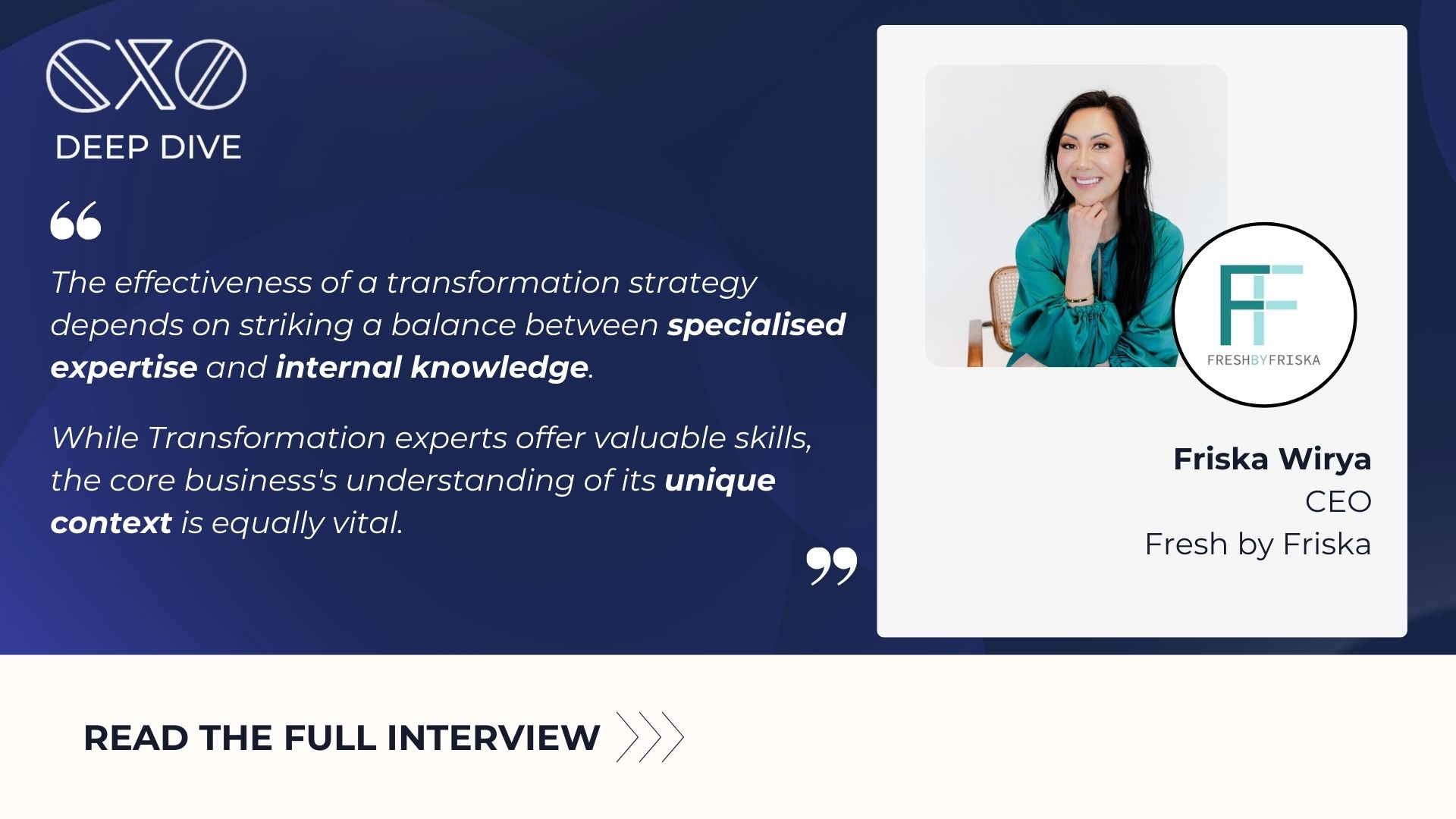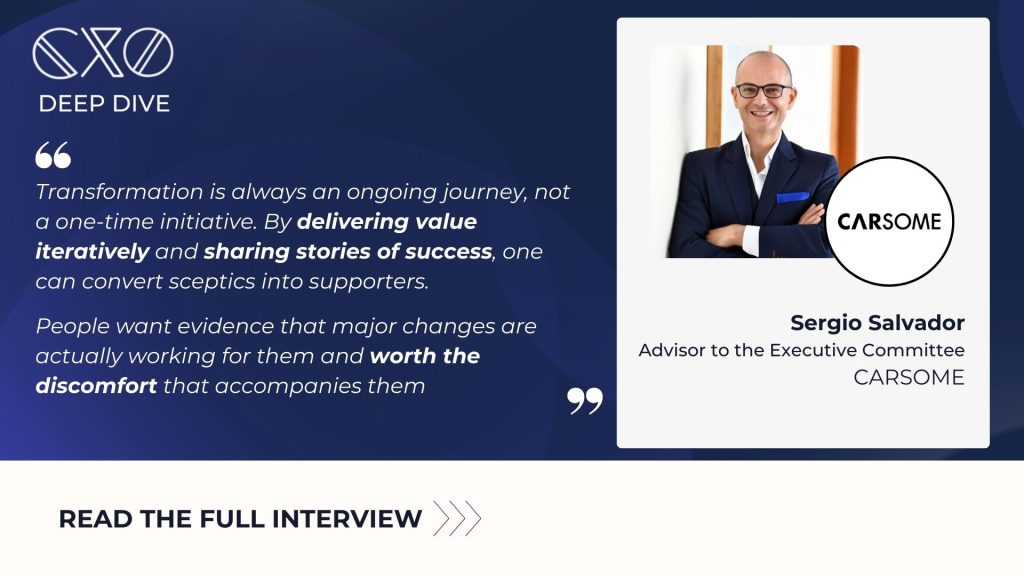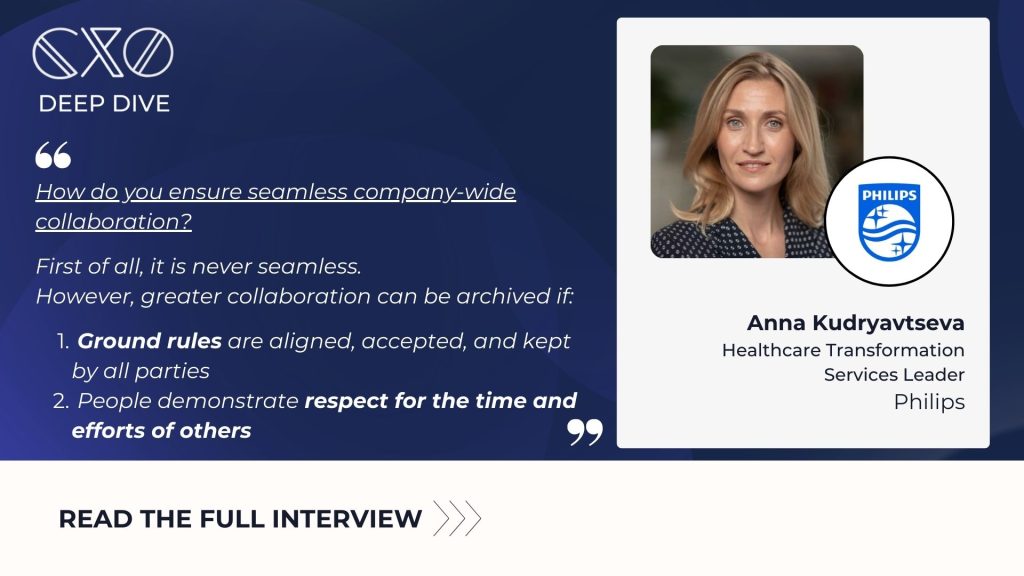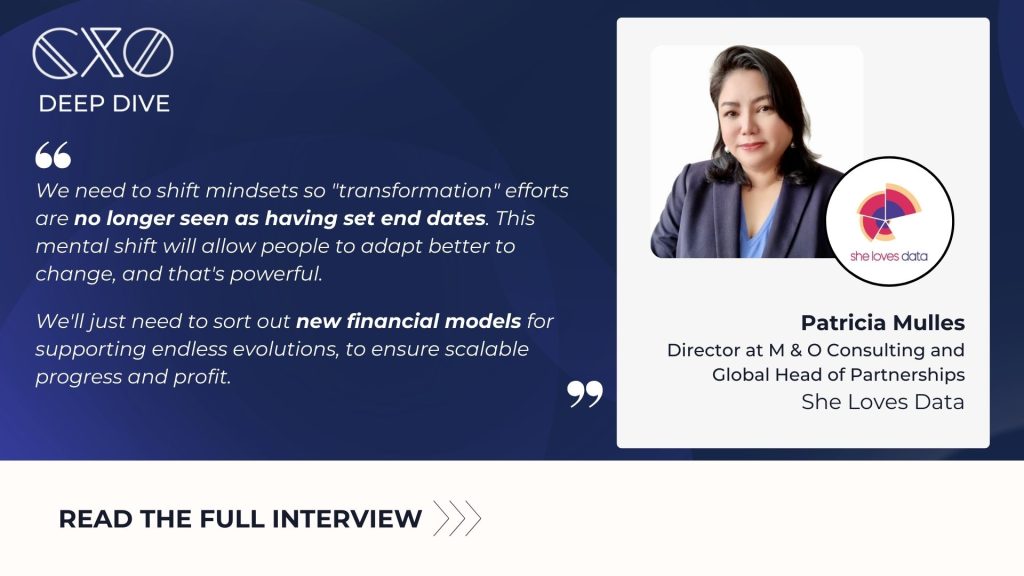Friska Wirya, CEO of Fresh by Friska, sharing her insights and experiences on Transformation Strategy, Partnership & Organisational Transformation, as part of the CXO Deep Dive series.
How would you explain your job to a 5-year-old?
I partner with large complex organisations in engineering, mining, health, oil and gas and banking to drive cultural, sustainability and technological transformation.
“There is no digital transformation, just transformation.” Do you agree or not? Why?
I respectfully disagree. While it’s true that transformation encompasses more than just digital aspects, the rise of technology has brought a paradigm shift in how businesses operate and interact with their stakeholders.
Digital transformation represents a specific type of transformational effort that centres around the integration of digital technologies into all areas of an organisation. This includes leveraging technologies like AI, IoT, cloud computing, and data analytics to enhance operations, customer experiences, and decision-making processes. It’s not merely about adopting new tools, but about fundamentally changing how an organisation creates value.
The impact of digital technology on transformation is profound. It has accelerated the pace of change, disrupted traditional business models, and opened up new avenues for innovation. It has enabled businesses to gain unprecedented insights into customer behaviour, automate processes for efficiency, and create entirely new products and services.
The ongoing advancement of technology means that organisations must continuously adapt to remain competitive. While there are various types of transformation, digital transformation is a distinct and critical component in the modern business landscape. It leverages technology to drive innovation, efficiency, and customer value. Dismissing the significance of digital transformation could hinder an organisation’s ability to thrive in the digital age.
What are the top challenges in your business transformation process?
The top three challenges in a business transformation process typically include:
Resistance to Change: Many organisations don’t invest enough effort in overcoming resistance from employees and stakeholders – many choose to ignore it! Change is unsettling, and people will hesitate to abandon the status quo without enough involvement and education.
Lack of Clear Vision and Strategy: Without a well-defined vision and strategy, a transformation initiative can easily lose direction. It’s crucial to have a clear understanding of the desired outcome, a roadmap for achieving it, and metrics for measuring progress. Ambiguity or a lack of alignment among leaders can lead to confusion and inefficiencies, mutating the transformation narrative with each level down.
Legacy Systems and Processes: Existing legacy systems and ingrained processes can be a significant obstacle to transformation. Integrating new technologies or overhauling established workflows can be complex and resource-intensive. Compatibility issues, data migration challenges, and the need for retraining can slow down the transformation process.
Other common challenges may include a lack of adequate resources (financial, technological, or human capital), difficulties in managing cultural shifts, and external factors such as market volatility or regulatory changes. Effectively addressing these challenges requires careful planning, strong leadership, and a willingness to adapt strategies as the transformation progresses.
“It’s crucial to deliver and communicate benefits fast, to build momentum and confidence in transformation projects where there might be scepticism.”
Do you agree? Or you have other thoughts on the timeline of a transformation project?
Rapid delivery of benefits aligns closely with fundamental principles of human psychology and motivation. The human psyche is wired to seek gratification and rewards for efforts expended. When individuals witness the fruits of their labour quickly, it triggers a sense of accomplishment and reinforces a positive feedback loop.
This phenomenon is rooted in the concept of instant gratification, a fundamental aspect of human behaviour. When individuals experience immediate positive outcomes from their actions, it triggers the release of dopamine, a neurotransmitter associated with pleasure and reward. This surge of dopamine not only creates a sense of satisfaction but also reinforces the motivation to continue and engage further in the transformation process.
This aligns with the psychological principle of self-efficacy, coined by Albert Bandura. Self-efficacy refers to an individual’s belief in their ability to achieve specific goals or outcomes. When individuals witness early successes in a transformation project, it bolsters their confidence in their capability to contribute meaningfully to the endeavour.
Conversely, delayed gratification or a lack of visible progress can lead to frustration, disillusionment, and a decline in motivation. It can erode confidence and belief in the transformation process, potentially leading to disengagement or resistance.
The rapid delivery of benefits in a transformation initiative is not only a strategic imperative but also a psychologically sound approach. It taps into the innate human drive for achievement, providing individuals with the reinforcement and motivation needed to sustain momentum and drive the transformation forward.
Do you see transformation as a distinct skillset, best delivered by “Transformation Experts”, or is it better to be led by the core business?
The most successful changes are OWNED by the core business, and supported with special transformational skillsets.
Transformation as a Distinct Skillset:
In complex, large-scale transformations, especially those involving significant technological shifts, having specialised Transformation Experts can be invaluable. These experts bring a depth of knowledge in change management methodologies, technological integration, and process optimisation.
For instance, consider a traditional manufacturing company aiming to digitise its operations. Transformation Experts with a deep understanding of Industry 4.0 technologies can provide crucial guidance in implementing IoT, AI, and automation solutions.
Being Led by the Core Business:
The core business is intimately familiar with its industry, market dynamics, and customer base. This inherent knowledge can be a powerful asset in guiding a transformation. The core business understands its unique strengths, pain points, and strategic priorities.
For example, a retail company looking to implement an omnichannel strategy may best leverage its internal teams who have a deep understanding of customer behaviours and preferences.
Often, the most successful transformations result from a collaborative effort between Transformation Experts and the core business. The experts bring in specialised skills and a fresh perspective, while the core business provides industry-specific knowledge and organisational context.
Consider a healthcare organisation transitioning to a patient-centric model. Transformation Experts can offer insights on process redesign, while medical professionals and administrators provide critical input on patient care practices.
The effectiveness of a transformation strategy depends on striking a balance between specialised expertise and internal knowledge. While Transformation Experts offer valuable skills, the core business’s understanding of its unique context is equally vital.
How do you pick the right partners to accelerate digital transformation?
Assess Expertise and Experience: Look for partners with a proven track record of success in digital transformation projects, especially within your industry or related fields.
Evaluate Cultural Fit: Ensure that the partner’s values, work ethic, and problem-solving approach align with your organisational culture.
Consider Industry Knowledge: Prioritise partners with a deep understanding of your industry, as this knowledge will be invaluable in navigating industry-specific challenges.
Assess Technological Capabilities: Evaluate the partner’s proficiency in relevant emerging technologies, such as AI, IoT, cloud computing, etc.
Verify Security and Compliance Measures: Confirm potential partners have robust data security measures and a strong understanding of relevant regulatory compliance.
A big thank you to Friska for sharing the insights on Transformation Strategy, Partnership & Organisational Transformation!
Visit our content library for more insights from the CXOs: https://cxoinnovation.com/content-library/
Join our LinkedIn CXO Community.





